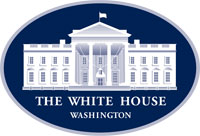White House encourages global health innovations
March / April 2012 | Volume 11, Issue 2
 Innovation has been the theme of several recent White House events held to launch programs that encourage "big data" research collaborations, reward inventors for solving global problems, and establish partnerships with U.S. academic institutions to improve America's aid efforts abroad.
Innovation has been the theme of several recent White House events held to launch programs that encourage "big data" research collaborations, reward inventors for solving global problems, and establish partnerships with U.S. academic institutions to improve America's aid efforts abroad.
"A core part of my global development strategy is harnessing the creativity and innovation of all sectors of our society to make progress that none of us can achieve alone," said President Barack Obama. "The new collaborations we're launching will help save lives from hunger and disease, lift people from poverty and reaffirm America's enduring commitment to the dignity and potential of every human being."
One project unveiled by the White House Office of Science and Technology Policy will engage at least six federal science agencies in a $200 million collaboration to develop core technologies and other resources needed to manage and analyze enormous data sets. One such example is a partnership between NIH and Amazon Web Services that will make the world's largest data set on human genetic variation publicly available on Amazon's cloud.
"The explosion of biomedical data has already significantly advanced our understanding of health and disease. Now we want to find new and better ways to make the most of these data to speed discovery, innovation and improvements in the nation's health and economy," said NIH Director Dr. Francis S. Collins.
New model licensing agreements, including one developed by NIH, will expedite licenses for nonprofit institutions to provide broad global access to technologies, reduce transaction costs and encourage transfer of more government-owned technologies, such as vaccines, to promote global public health.
In addition, the U.S. Patent Office announced Patents for Humanity, a competition to reward inventors who demonstrate how their patented technology advances humanitarian causes and addresses a global challenge.
Finally, a new USAID partnership with universities is intended to better define and more efficiently address large development challenges. The Partnerships for Enhanced Engagement in Research (PEER) program will strengthen the understanding of potential problems and the range of solutions, support multidisciplinary approaches, and encourage innovation to improve effectiveness and reduce costs.
More Information
To view Adobe PDF files,
download current, free accessible plug-ins from Adobe's website.